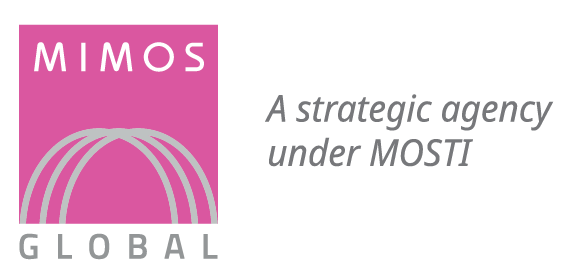Department:
Program Management Office
Position Purpose & Summary:
- Experience in project management roles, demonstrating a deep understanding of project lifecycles, methodologies, and best practices
- Experience in managing relationships with stakeholders, including and not limited to project teams, IT professionals, researches, senior leadership and external stakeholders.
- Experience in leading a team and demostrates leadership skills
Primary Duties & Responsibilities:
Scope Management:
- Define project scope, goals, and deliverables in collaboration with project stakeholders.
- Ensure that user requirements are clear (in-scope/out-of-scope), documented and agreed upon by stakeholders
- Ensure that project deliverables are defined and delivered as agreed with the customer/user.
- To effectively manage scope from start to finish, managing of scope creep, ensuring change management process is practiced
- Lead and oversee multiple projects simultaneously.
Schedule Management:
- Work with project team to establish detail schedule for work packages
- To identify dependencies and critical paths of the project schedule
- To perform project schedule baseline once the schedule has been fully integrated and consolidated
- Coordinate project activities and ensure project milestones are met. Monitor and track project progress against established metrics.
- To perform project schedule roll-up regularly
- To continuously evaluate the project’s performance and make adjustements as necessary by working with the team to identify action plan / recovery plan when any project schedule slippage occurs
- Develop a Project Closure report that all project deliverables have been completed and accepted by stakeholders.
- Archive all project documentation and files for future reference. Ensure that all project documentation is stored in a secure location.
- Document project successes, failures, and lessons learned to inform future project management.
- Ensure that project closure activities are completed within the defined timeline.
- Close all project contracts and agreements.
Cost/Budget Management:
- Evaluate and finalize the estimated costs required for the project
- To initiate project code in SAP. To manage and monitor project costs using SAP
- To prepare the project’s spending plan with the team. To monitor the progress of spending against the plan. To report on project’s spending performance.
Quality Management:
- Ensure project quality and compliance with project standards.
- Identify opportunities for process improvement within the project team.
- Identify and implement best practices for project management.
Risk Management:
- Initiate Project Risk Register
- Work with project stakeholders to identify project risks
- Perform risk evaluation, assessment and analyse it’s impact to the project
- Drive risk response to mitigate project risks
- To report and escalate risk reporting to management and relevant stakeholders
- Maintain project risk register and issue log
Integration Management:
- Ensure project objectives align with organizational goals.
- Oversees the integration of various project components, such as scope, schedule, budget, resources, quality, risk, and communications. This involves ensuring that all elements work together harmoniously to achieve project objectives.
Procurement Management:
- Contribute inputs on the approach of delivery of the project (to be delivered internally, partially out-sourced or fully out-sourced)
- Prepare Procurement Plan. Manage and monitor the activities in the procurement plan
Communication Management:
- Determine the project governance and communication structure
- Prepare project status reports and presentations.
- Facilitate project meetings and provide meeting minutes and action items.
- Maintain effective communication with project stakeholders.
- To report to management and relevant stakeholders the project’s progress against the baseline regularly
Stakeholder Management:
- Identify project stakeholders
- Resolve conflicts within the project team.
- Develop and maintain positive working relationships with project stakeholders.
Resource Management:
- Identify project team members by skillsets, experience, headcount required, etc. with on-boarding requirement
- Ensuring that the project’s resource requirement is always met. To work with hiring manager in identifying the resources with the correct skillsets and experience are made available to the project according to the project’s resource loading requirement
- To provide costing information for resources’ contract renewals / new hiring.
- Ensure project team members are adequately trained and equipped.
- Provide leadership and direction to project team members.
Relevant Work Experience
- Experience in project management roles, demonstrating a deep understanding of project lifecycles, methodologies, and best practices
- Experience in managing relationships with stakeholders, including and not limited to project teams, IT professionals, researches, senior leadership and external stakeholders.
- Experience in leading a team and demostrates leadership skills
Qualifications
- Degree in Science, Technology, Engineering, Information Technology, Computer Science or any relevant discipline. A master’s degree or additional certifications may be advantageous.
- Relevant ceritification such as Project Management Professional (PMP) or Prince2 Certification will be added advantage
Technical/ Functional Skills
- Project Planning: The ability to create comprehensive project plans that outline project scope, objectives, timelines, deliverables, and resource requirements. Proficiency in tools such as Gantt charts, work breakdown structures (WBS), and project scheduling software (e.g., Microsoft Project) is essential.
- Risk Assessment and Management: Competence in identifying potential risks, analyzing their impact and probability, and developing strategies to mitigate or manage them effectively. This includes creating risk registers, conducting risk assessments, and implementing risk response plans.
- Resource Allocation and Management: Skill in allocating resources (including human resources, finances, and materials) efficiently to ensure that project tasks are completed on time and within budget. This involves resource estimation, resource leveling, and resource optimization.
- Budgeting and Cost Management: Proficiency in developing project budgets, tracking project expenditures, and managing costs throughout the project lifecycle. This includes budget estimation, cost forecasting, and cost control techniques to ensure that projects remain within budget constraints.
- Quality Assurance and Control: Knowledge of quality management principles and techniques to ensure that project deliverables meet quality standards and specifications. This includes defining quality metrics, conducting quality inspections, and implementing quality assurance processes.
- Change Management: Ability to manage changes to project scope, schedule, and requirements effectively while minimizing disruptions to project progress. This involves assessing change requests, evaluating their impact, and implementing change control processes to ensure that changes are properly documented and approved.
- Procurement and Vendor Management: Competence in establishing procurement plan and able to provide inputs to procurement strategies depending on the needs of the project. Able to manage vendors/contractors delivery effectively.
- Technical Knowledge: Depending on the nature of the project, project managers may need specific technical knowledge or expertise related to the industry or domain in which the project is being executed. This could include knowledge of software development methodologies, engineering principles, or other specialized areas.
- Documentation and Reporting: Skill in creating and maintaining project documentation, including project Commitment Book, status reports, meeting minutes, and other relevant documentation. This involves clear and concise communication of project progress, issues, and decisions to stakeholders.
- Stakeholder Management: Ability to identify project stakeholders, assess their needs and expectations, and effectively engage and communicate with them throughout the project lifecycle. This includes managing stakeholder relationships, addressing concerns, and ensuring stakeholder satisfaction.
- Continuous Improvement: Able to Identify areas for improvement in project management processes and implement best practices for future projects.
Other Compentencies/Skills:
- Good command of MS Office Suite of Applications; MS Project, Word, Excel Powerpoint, Sharepoint, etc
- Good understanding of Software Development Life Cycle including quality and audit processes.
- Adequate understanding of Hardware Development and manufacturing processes.
- Good understanding of technology applications.
- Good understanding of the governance process that needs to be adhered.
- Good understanding of what information needs to be shared/escalated to stakeholders in the form of periodic reporting.
Soft Skills
- Excellent Communication Skills and able to develop and implement communication plans and strategies: This skill involves the ability to convey information effectively, both verbally and in writing. It includes being articulate, clear, and concise in conveying ideas, as well as the capacity to develop and execute communication plans tailored to various audiences and objectives. Has a good command of a minimum of Bahasa Malaysia and English languages; both written and spoken.
- People Management Skills: This encompasses the ability to lead, motivate, and guide individuals or teams towards achieving project goals. It involves skills such as delegation, performance management, conflict resolution, and fostering a positive work environment.
- Leadership Skills: Leadership involves inspiring and guiding others towards a common vision or goal. Effective leaders exhibit traits such as integrity, empathy, decisiveness, and the ability to empower and develop others.
- Coaching and Mentoring Skills: Coaching involves guiding individuals to improve their performance and develop their skills, while mentoring involves providing guidance and support based on one’s own experience and expertise. Both skills are essential for fostering talent and facilitating professional growth.
- Influencing Skills: Influencing skills involve the ability to persuade others to adopt a certain viewpoint, take a specific action, or support a particular initiative. This skill relies on effective communication, building rapport, and understanding others’ motivations and concerns.
- Negotiation Skills: Negotiation involves reaching mutually beneficial agreements through communication and compromise. It includes skills such as active listening, problem-solving, assertiveness, and finding common ground.
- Conflict Management Skills: Conflict management involves identifying, addressing, and resolving conflicts in a constructive manner. It includes skills such as communication, empathy, mediation, and finding win-win solutions.
- Time Management: Time management involves effectively allocating and prioritizing tasks to maximize productivity and achieve goals within set deadlines. It includes skills such as organization, planning, delegation, and the ability to minimize distractions.
- Writing and Presentation Skills: These skills involve the ability to convey information clearly and persuasively through written documents or oral presentations. It includes skills such as structuring content logically, tailoring messages to the audience, and using visual aids effectively to enhance understanding.
- Problem Solving Skills : It involves critical thinking, the ability to identify problems, brainstorm, decision-making, creativity, and information processing to implement the best solution.


